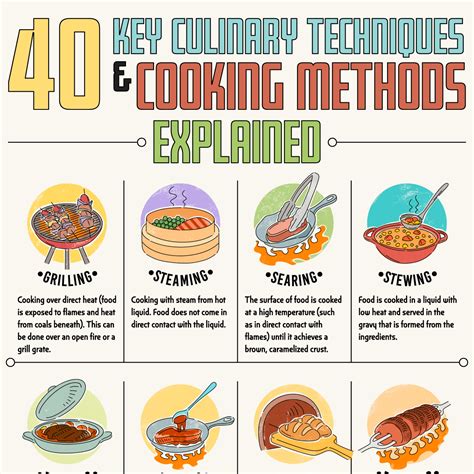Table of Contents

- Introduction
- Essential Food Preparation Duties
- Efficient Strategies for Food Preparation
- Step-by-Step Food Preparation Process
- FAQs on Food Preparation
- Tips for Enhancing Food Preparation Skills
- Conclusion
Introduction
Food preparation is an essential aspect of cooking and essential for wholesome and delicious meals. Mastering food preparation techniques and duties empowers home cooks and aspiring chefs alike to create culinary masterpieces that nourish and delight. This guide provides a comprehensive overview of food preparation duties, covering everything from essential techniques to efficient strategies and a step-by-step approach to food preparation.
Essential Food Preparation Duties
Mise en Place
Mise en place is a French term that means “to put in place.” It refers to the essential preparation step of organizing and measuring all ingredients, equipment, and tools before cooking begins. Properly executed mise en place ensures a smooth cooking process, reduces stress, and minimizes the risk of errors.
Knife Skills
Knife skills are paramount in food preparation. Mastering the proper techniques for holding, gripping, and cutting allows for efficient and safe preparation of various ingredients. Basic knife skills include mincing, dicing, slicing, and julienning.
Food Safety and Hygiene
Food safety and hygiene are non-negotiable in food preparation. Maintaining a clean and organized work area, washing hands thoroughly, and storing food properly are vital to prevent contamination and foodborne illnesses. Proper food handling practices ensure the health and well-being of those consuming the prepared food.
Cooking Techniques
Cooking techniques encompass the art and science of transforming raw ingredients into delectable dishes. Common cooking techniques include grilling, roasting, sautéing, braising, and baking. Understanding the principles of each technique allows cooks to control the heat and timing, achieving optimal results.
Efficient Strategies for Food Preparation
Planning and Organization
Planning and organization are crucial for efficient food preparation. Recipe selection, ingredient gathering, equipment selection, and a clear work plan can significantly streamline the cooking process. Utilizing checklists and designated work areas can enhance organization and reduce time wastage.
Task Management
Effective task management involves breaking down food preparation into smaller, manageable tasks. Prioritizing tasks based on importance and urgency, delegating when possible, and using time management techniques such as the Pomodoro Technique can boost productivity.
Equipment and Tool Utilization
The right equipment and tools can make food preparation easier and more efficient. Investing in quality knives, cutting boards, measuring cups and spoons, and specialized tools such as food processors and blenders can significantly improve speed and precision.
Step-by-Step Food Preparation Process
Step 1: Gather Ingredients and Tools
Read the recipe carefully and gather all required ingredients. Measure ingredients accurately using measuring cups and spoons. Prepare all necessary equipment and tools, ensuring they are clean and in good working condition.
Step 2: Prepare Ingredients
Begin by washing fresh produce thoroughly. Prepare ingredients according to the recipe, such as mincing garlic, dicing onions, or slicing vegetables. Utilize knife skills and techniques for efficient ingredient preparation.
Step 3: Cooking
Follow the recipe instructions for cooking methods and timing. Use the appropriate heat settings and cooking techniques to achieve the desired results. Monitor the cooking process closely to prevent overcooking or undercooking.
Step 4: Plating and Presentation
Once the food is cooked, present it in an appealing manner. Choose appropriate serving dishes and arrange the food aesthetically. Garnish with herbs, sauces, or other elements to enhance the visual appeal and flavor.
FAQs on Food Preparation
- What is the most important food preparation duty?
-
Mise en place (organizing all ingredients, equipment, and tools).
-
How can I improve my knife skills?
-
Practice regularly, attend a knife skills class, or utilize online tutorials.
-
What is the best way to store food safely?
-
Refrigerate or freeze perishable food, use airtight containers, and rotate stock to prevent spoilage.
-
How can I cook food more efficiently?
- Plan ahead, use time-saving appliances like food processors, and optimize task management.
Tips for Enhancing Food Preparation Skills
- Read and experiment with recipes: Expand culinary knowledge and techniques.
- Enroll in cooking classes: Gain hands-on experience and expert guidance.
- Watch cooking shows and videos: Observe professional techniques and expand inspiration.
- Practice regularly: Repetition and experimentation lead to mastery.
- Seek feedback: Ask for constructive criticism to identify areas for improvement.
Conclusion
Food preparation is a fundamental aspect of cooking, requiring a blend of knowledge, skills, and strategies. By mastering essential duties like mise en place, knife skills, food safety, and cooking techniques, home cooks and aspiring chefs can elevate their culinary creations. Efficient strategies and a step-by-step approach can streamline the preparation process, while continuous learning and experimentation lead to culinary excellence. Embracing these principles empowers individuals to prepare delicious and wholesome meals with confidence and precision.
